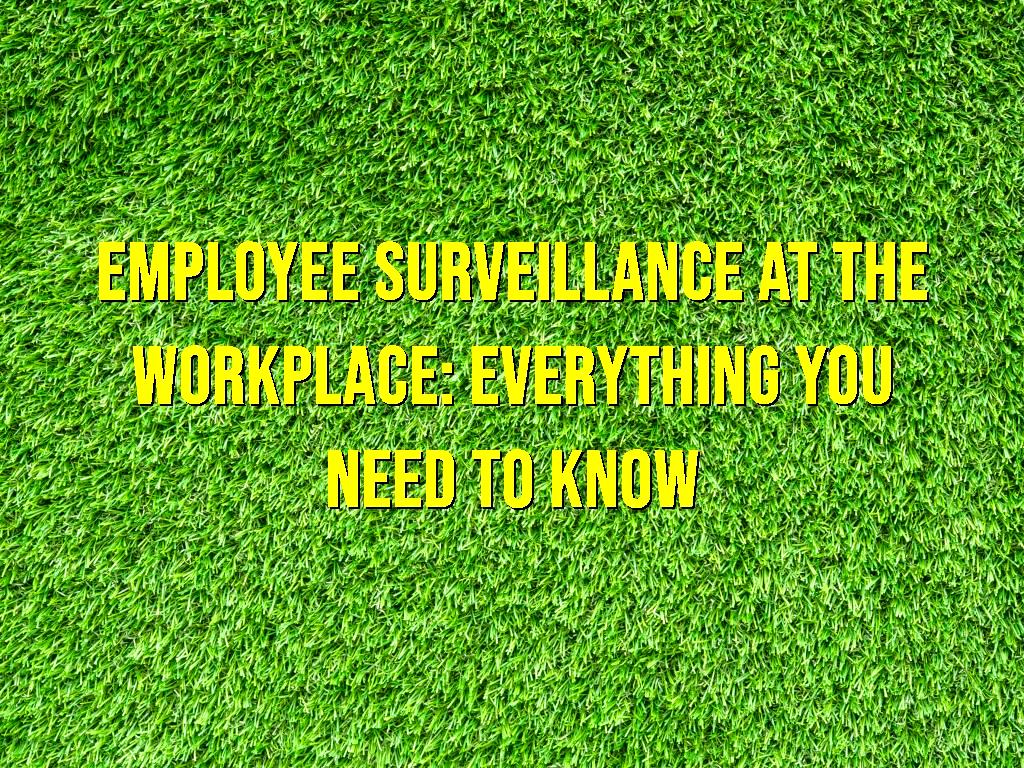Employee surveillance at the workplace: Everything you need to know
3 minute(s) read | Published on: Sep 26, 2023 Updated on: Sep 26, 2023 |
Employers are actively searching for novel approaches to oversee employee productivity and safeguard valuable company data. Consequently, numerous employee surveillance measures are being introduced in workplaces worldwide. This article examines the subject of employee surveillance, delving into its advantages and ethical dilemmas.
Understanding employee surveillance
It refers to monitoring employees' activities at work, either in the physical office or in a remote setting. This surveillance can take various forms, including computer usage tracking, GPS tracking on company-owned devices, video monitoring, and even screenshotting software.
As The New York Times reported recently, the debate surrounding employee surveillance continues to evolve. Organizations must ensure their surveillance practices align with legal and ethical standards. By doing so, they can create a productive workplace that respects individual privacy and autonomy.
Benefits of This
Here are various benefits of monitoring employees.
- Enhanced productivityOne of the reasons employers implement surveillance measures is to ensure employees remain focused on their tasks. Computer usage tracking helps identify time-wasting activities, like excessive social media usage and non-work-related browsing.
- SecurityEmployee surveillance can help protect a company's sensitive data and intellectual property. Organizations can detect and prevent data breaches or insider threats by monitoring employee activities.
- ComplianceSpecific industries, like finance and healthcare, are subject to strict regulatory requirements. Employee surveillance helps companies ensure their employees adhere to these regulations.
- Remote work managementWith the widespread adoption of remote work, employers often use surveillance tools to track employee hours and assess productivity levels, as they may have a different level of oversight than in a traditional office setting.

Drawbacks of employee surveillance
Here are various disadvantages of monitoring employees.
- Privacy concernsConstant monitoring can make employees feel uncomfortable and like they are constantly under scrutiny. It can lead to stress and decreased job satisfaction.
- Trust issuesExcessive surveillance can erode trust between employers and employees. When workers feel that their every move is being watched, it can foster a culture of mistrust and disengagement.
- Legal and ethical issuesDepending on the jurisdiction, extensive employee surveillance may violate privacy laws. Screenshotting software, for example, can capture sensitive personal information inadvertently, raising legal and ethical concerns.
- Productivity vs. creativityWhile surveillance can boost productivity, it may stifle creativity and innovation. Employees might hesitate to experiment or take risks if they fear their actions get monitored.
Ethical considerations
As employee surveillance tools become more widespread, it is best to consider the ethical implications of these practices. Employers must strike a balance between monitoring productivity and respecting employees' rights. Employers should be transparent about their surveillance practices. Clear policies and guidelines should be in place for successful implementation.
Bottom line
Employee surveillance is a complex issue that requires careful consideration. While it offers productivity, security, and compliance benefits, it also raises privacy, trust, and ethics concerns. Balance between monitoring and respecting employees' rights is essential to creating a healthy work environment in the digital age.